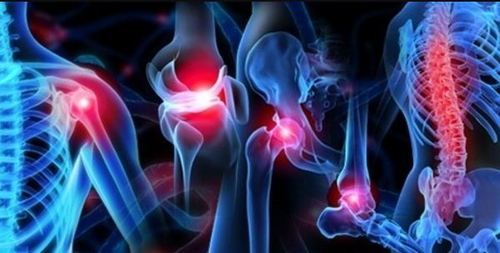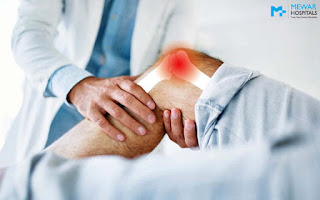Which Conditions Require Orthopedic Surgery Help?
You must have heard about different sectors of medical
science. Here, we will represent one of its important sectors, i.e.,
orthopedics. Any of us may require help from this department as it delivers the
care for our musculoskeletal system. Now, what the musculoskeletal system
stands for! Our bones, muscles, joints, tendons, and ligaments come under the
musculoskeletal system. If you suffer from issues related to such components,
you can consult an orthopedic surgeon or an orthopedist. According to the
condition, he will suggest a relevant treatment option. Like, it can be in a
non-surgical. This means medicines, injections, or physical therapies may be
recommended to treat the condition. Apart from that, there can be a use of
orthopedic surgery treatment in critical cases.
In the below section, we will make you aware of some common
conditions in which performing surgery may become essential.
1. Joint Pain
A condition named arthritis is a serious problem for our
joints that can turn out to be worse especially when timely treatment isn't
there. A lot of joints like the knee, hip, shoulder, and elbow can be affected
by this joint inflammation disease. Although joint pain proves to be a common
situation, sometimes it can turn out to be very serious. That's why; taking
help from a professional becomes essential. Some home remedies along with
medical treatment options are there for the patient to obtain relief.
Basically, it depends on the severity of the condition. Like, if the condition
doesn't get fine with non-surgical methods, the surgeon may recommend
orthopedic surgery treatment.
The most commonly used surgery, in this case, will be joint
replacement surgery. Here, the damaged or arthritic parts of the joint will be
eliminated and replaced by an artificial substance known as a implants. That helps
to copy the movement of a healthy and ordinary joint.
2. Soft Tissue Injury
There is a presence of various soft tissues in the body
whose health is important for our wellbeing. The muscles, ligaments, or tendons
may damage due to some reasons. In many cases, such injuries can contribute to
some pain but settle down with time. But when it turns out to be worse and
there is a complete tear, it may ask for orthopedic surgery.
3. Serious Fractures
A fracture can take place in several parts of the body. For
example, in the elbow, shoulder, foot, hand, hips, knees, and spine. Some
fractures can heal with the help of traditional approaches like bracing,
splinting, or casting. But when the bone is severely broken, it will call for
orthopedic surgery treatment. A bone fracture repair surgery is done when a
broken bone isn't capable to heal properly with bracing, splinting, or casting
alone. One of the common kinds of surgery in this category is internal
fixation. Here, the surgeon attempts to put back broken pieces of the bone in a
correct position with the help of plates, screws, pins, and rods.
4. Spine-Based Issues
A lot of complaints regarding the spine are observable
inside a person. Our spine is a crucial element of the body. When it
experiences an issue, a person is not able to live a comfortable life. There
are a lot of spine-related conditions like bone spur, degenerated or herniated
disc, osteoporosis, sciatica, spinal tumor, spondylosis, spinal stenosis, etc.
that can bring serious problems. Some conditions may settle down with the help
of traditional methods. But, there can be a presence of some tricky conditions
that necessitate an orthopedic surgery treatment. In the orthopedics
department, a lot of spine-based surgical practices are available based on the
situation. Some of them are vertebroplasty, kyphoplasty, endoscopic spine
surgery, spinal fusion, artificial disc replacement, discectomy, laminectomy,
laminoplasty, foraminotomy, etc.
Orthopedic surgery may sound terrible to some people. But
somehow it can benefit a patient in different ways. If you're suffering from
any problem related to the musculoskeletal system that isn't getting fine and
worsening down with time, do consult with an experienced orthopedic surgeon.




Comments
Post a Comment